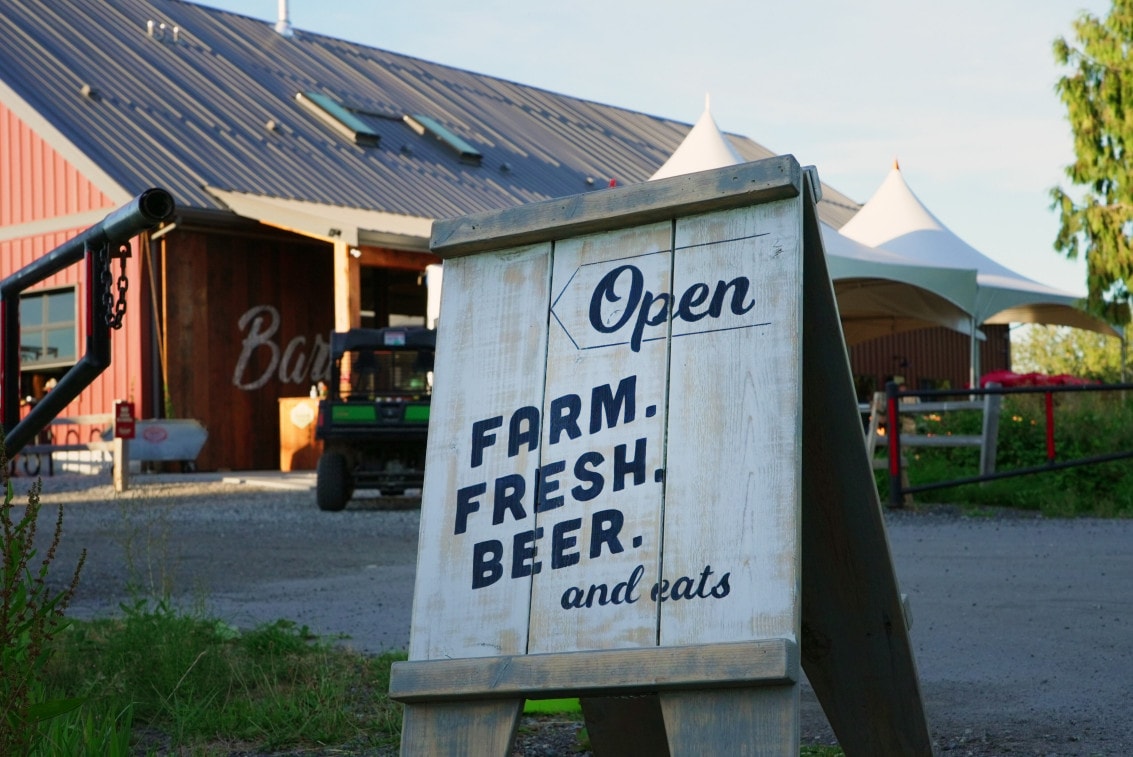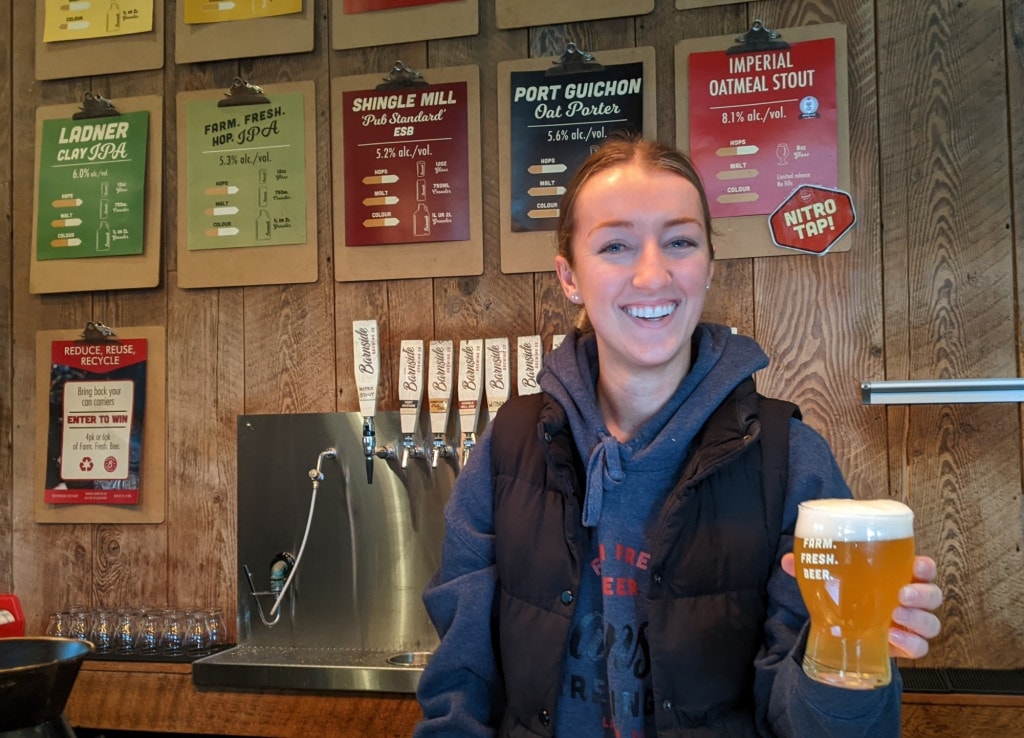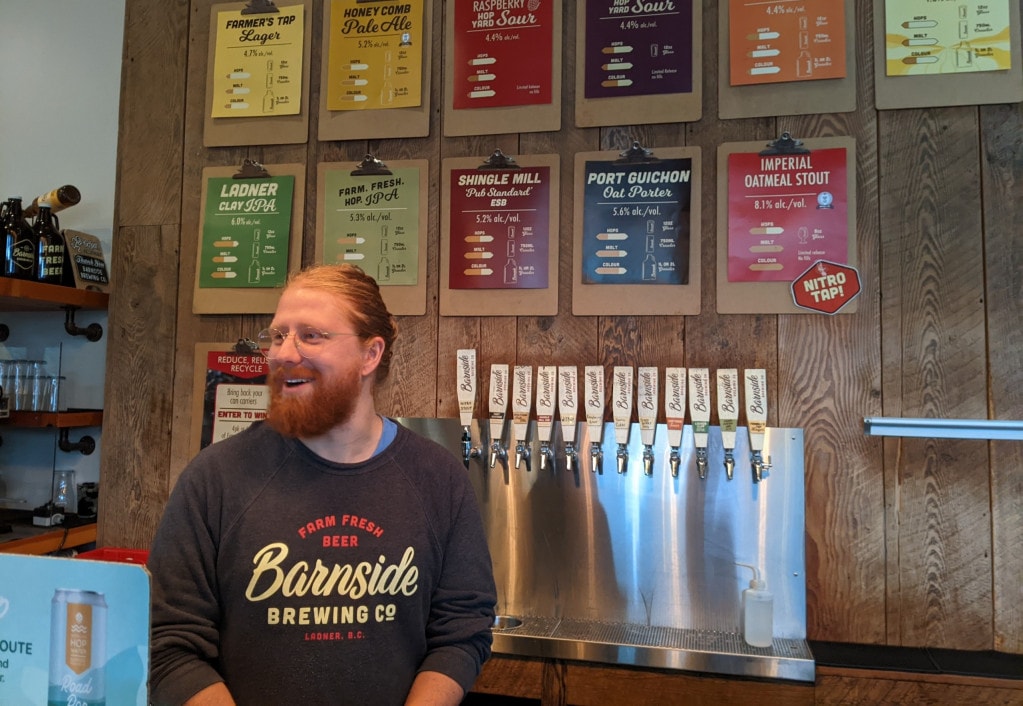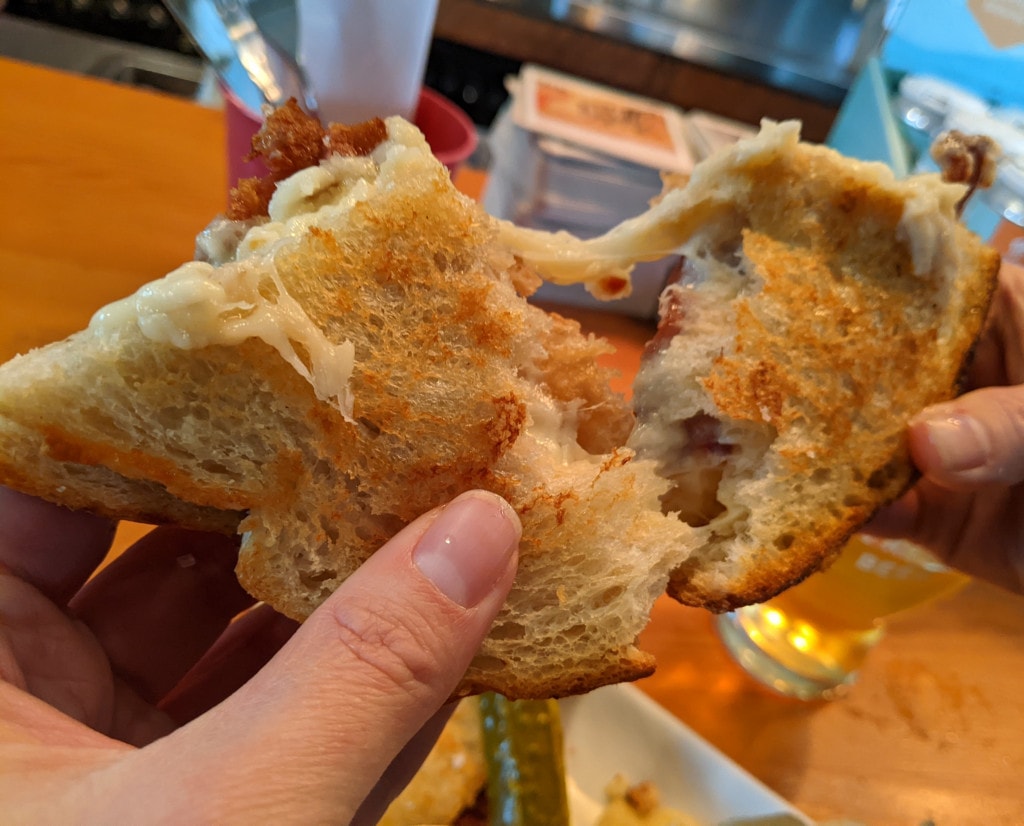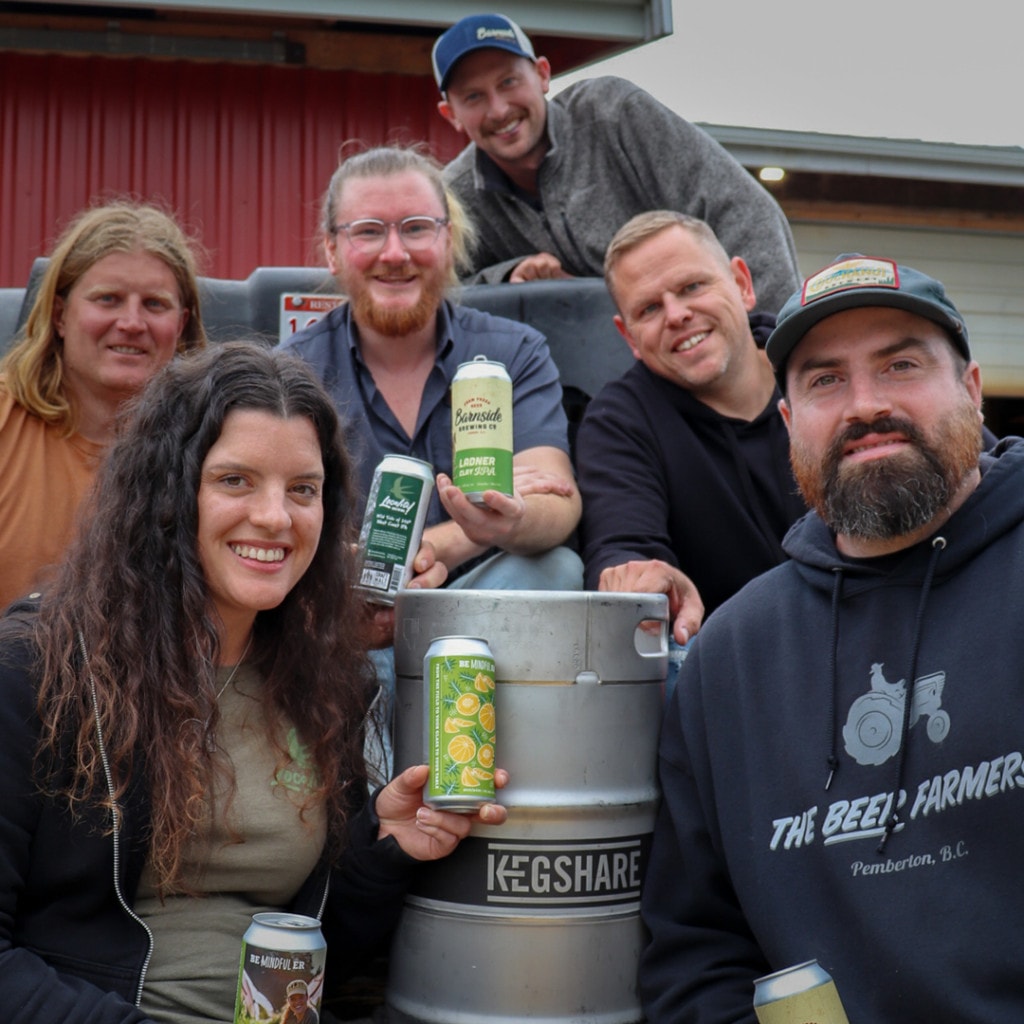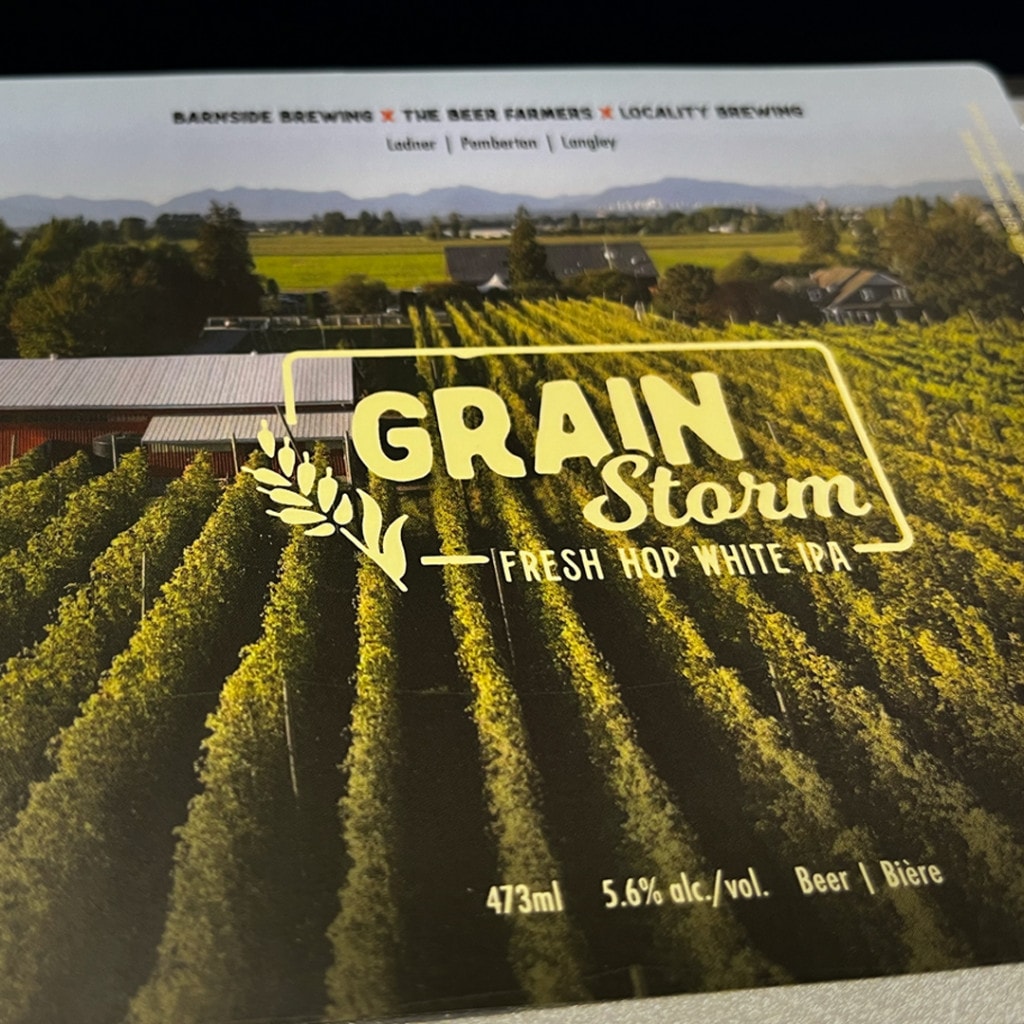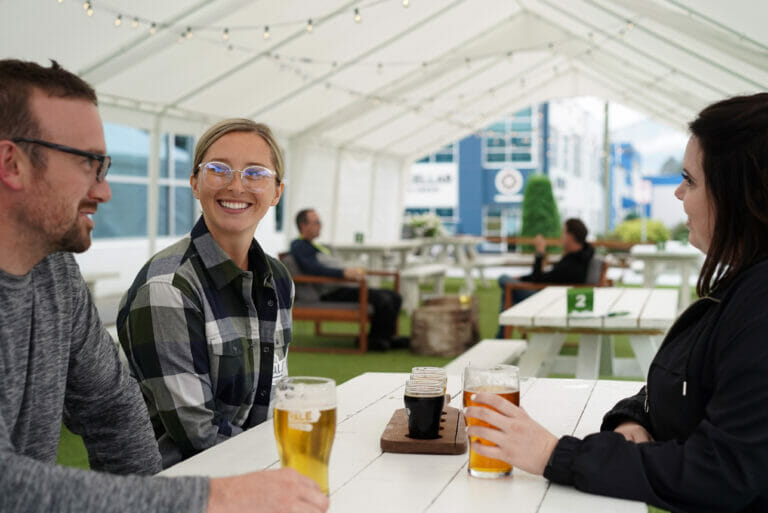The rise of the craft beer movement paralleled the rise of the farm-to-table movement, so it should be no surprise that one of the best spots to enjoy a craft beer is at a table on a farm.
A group of childhood friends who grew up on the flat farmlands of Delta, B.C. came together through agriculture and have brought that spirit of cultivation into brewing. By embracing hyper-local ingredients in their beer and providing an escape from daily digital dalliances, Barnside Brewing has earned the BC Ale Trail’s 6th Annual Best Brewery Experience Award.
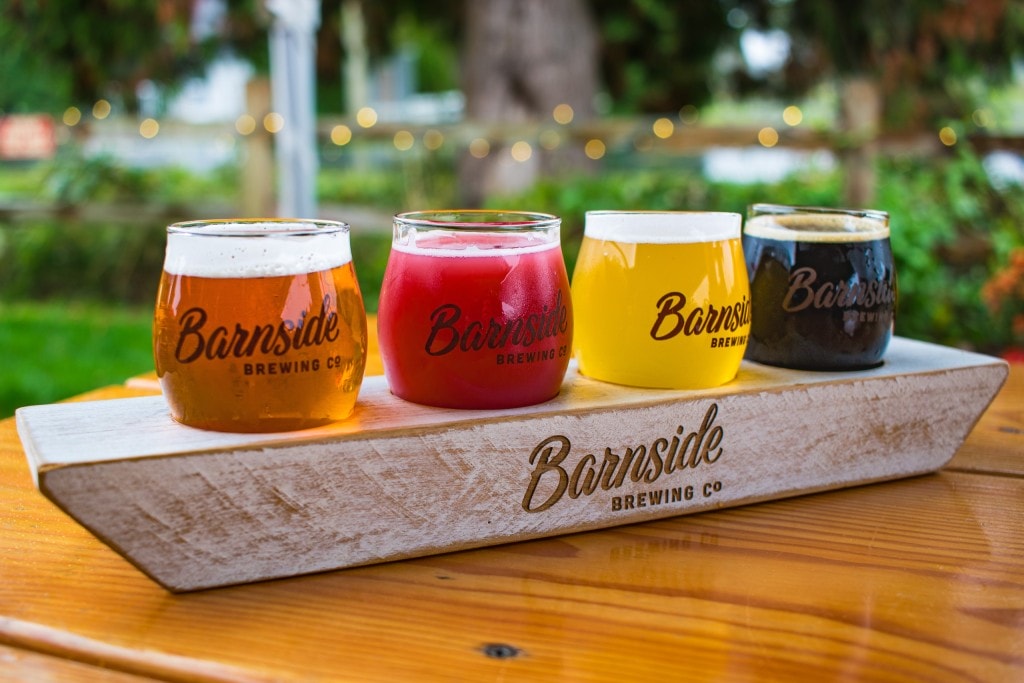
First things first, city slickers: to get to Barnside Brewing for their ‘farm fresh’ beer, you have to slow down.
Twenty-five kilometres south of downtown Vancouver, at the junction of highways 99 and 17A, you’ll drift down to 50 km/hr or less onto 60th Avenue. It’s a two-lane road that is not curbed with sidewalks but by a mix of tall deciduous and coniferous trees, waving as you cruise by like onlookers at a parade.
You’ll pass farms that have, at various times over the past 100 years, converted from dairy production to vegetable and food farming. The cattle are gone, but the long red barns have been maintained, so you would be excused if you didn’t notice that one of them housed a brewery. The giveaways: a street-facing patio and a vintage wordmark that reads Barnside Brewing Co.
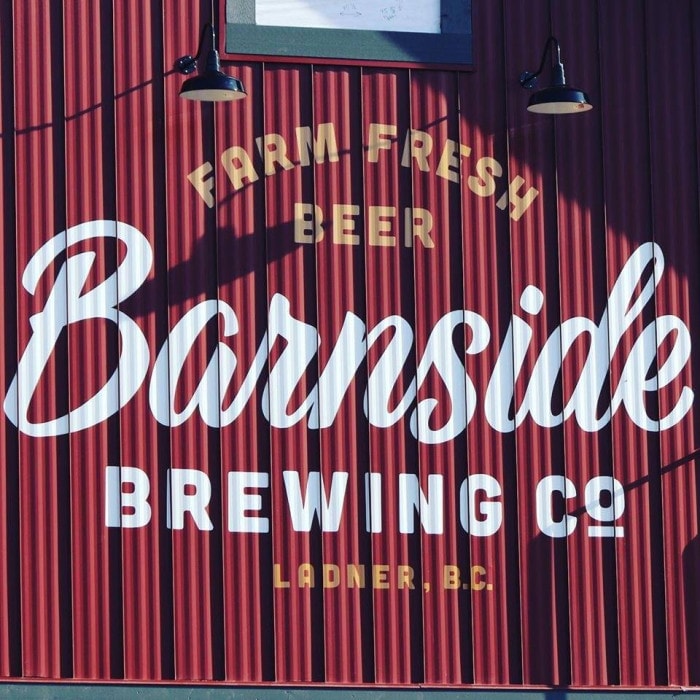
You can sit outside on that patio, lined with hay bales and planters of marigolds, or head inside to a tasting room featuring family farming photos and century-old maps drawn on the walls. You’ll find tables, walls, beams, and counters all made from reclaimed wood from two local barns, but you won’t find any televisions. Conversation, connection, and craft beer grow here.
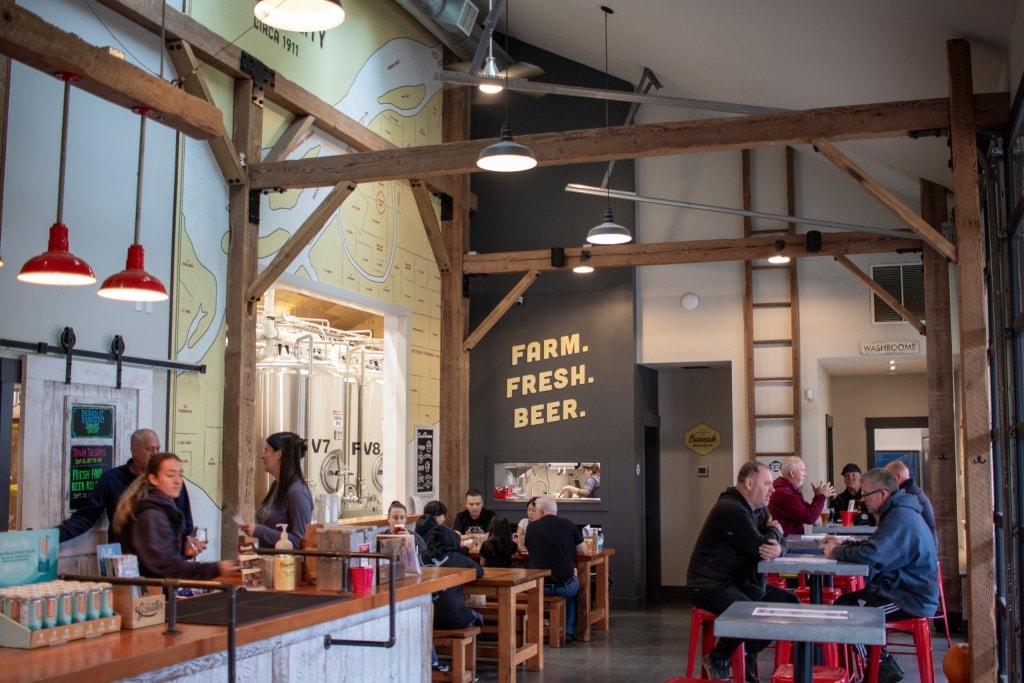
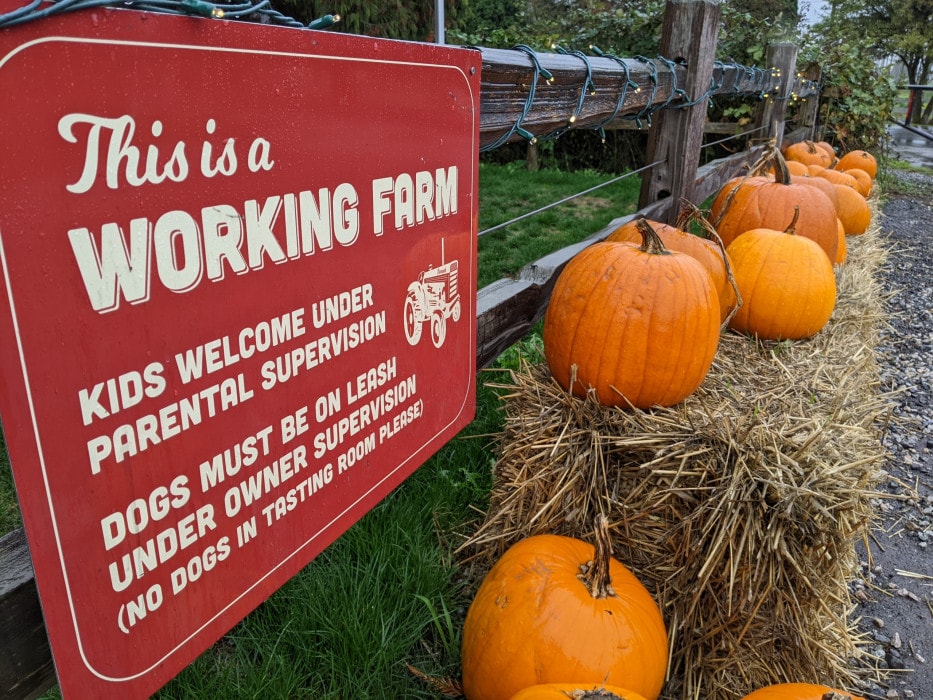
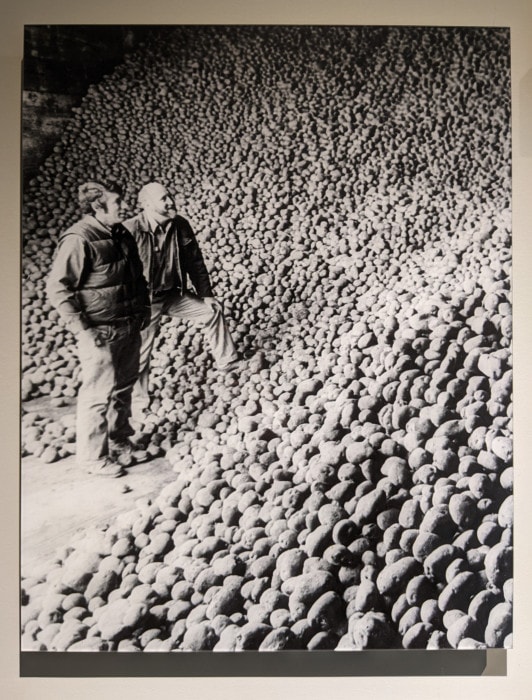
The story of Barnside Brewing, which opened in 2020, starts with a reconnection of farming friends who grew up together in the same neighbourhood where the brewery now stands. As kids on the farm, their toys ranged from mini-bikes to full-size tractors. Instead of tree forts, they built hay forts, and the flat landscape was perfect for ball hockey.
Telling the story is one of those friends: hop farmer and Barnside’s co-founder Ken Malenstyn. He’s an energetic, compelling storyteller with no shortage of interests, and serves as Barnside’s general manager (and occasional landscaper). Conveniently, he lives across the street from the brewery and on the same property as his hop farm.
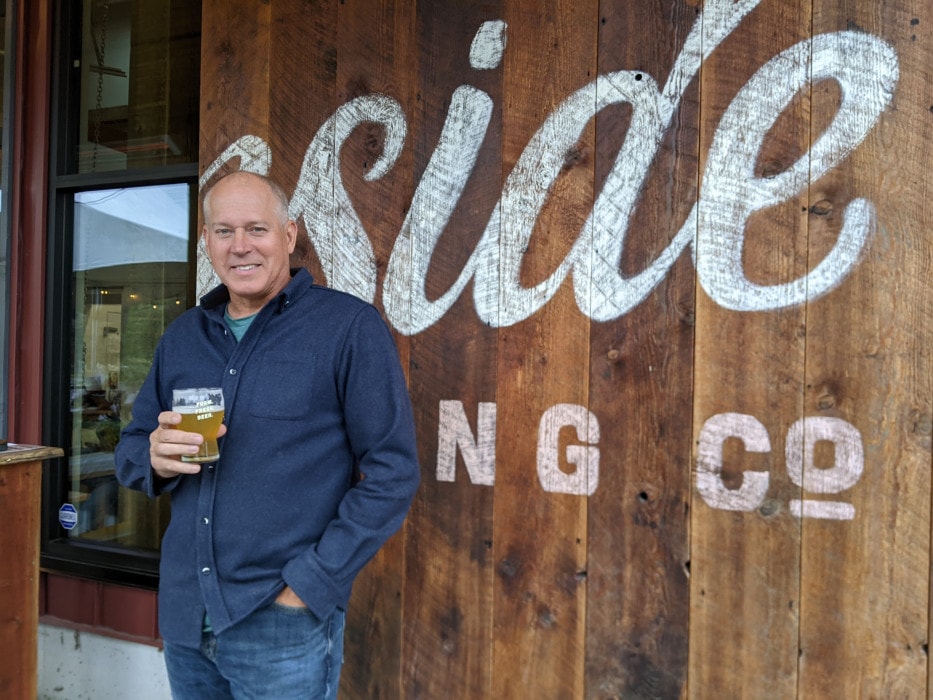
Speaking over the rhythm of an October rain and Shania Twain on the Barnside patio, Malenstyn recalled childhood memories about farming in the same area he’s sitting in now. Different families—from kids to grandparents—came together to help with harvest days, whether with manual labour or by sharing equipment. Coffee breaks involved great conversations, often paired with fresh baking from his mother.
“Cool memories, right?” Malenstyn said. “It was way more community-involved rather than people working, isolated. When we’re doing hops, we get quite a crew together. It’s kind of cool that a harvest still brings people together and that’s what I enjoyed about it.”
Delta remains an important agricultural area today. According to the City of Delta:
- Almost 80% of cereal crops, 62% of vegetables, and 22% of forage crops grown in Metro Vancouver are grown in Delta
- 9 out of 10 BC tomatoes come from only 200 acres in Delta
- Over half of BC’s green beans and potatoes are grown in Delta
- Nearly all farms in Delta are family-owned and operated
As Malenstyn’s generation of friends grew up, they took over their family farms. Unbeknownst to each other, they started growing crops that would cover off all brewing ingredients.
“The whole process of opening the brewery came about organically,” Malenstyn said. He was looking to grow hops as something new to do on the farm while another friend was growing grain. Another was delving into homebrewing. So, they figured, why not pool their resources, skills, and knowledge to open a brewery, since they had all the elements they needed—including an authentic backstory?
“We’re all farm families and have been here at least 70 or 80 years in the community,” Malenstyn said. “Growing the ingredients and making beer, that seemed like it could be a pretty good story. In a day and age where people like going to the farm to buy their food, why wouldn’t they want to buy their beer right where it’s made and grown?”
“We could have opened two years sooner if we had done this in an industrial area,” Malenstyn added, “but it really would have missed the mark.”
Starting a brewery by committee was helpful. Coming up with a brewery name by committee? Not so much.
“Honestly, it was over a year… everyone had a different idea,” Malenstyn said. Favourites like Cultivator and Barnraiser were already taken in one form or another in North America.
“When we finally got to Barnside, it was a bit of a compromise… but I liked the old signage on barns, so Barnside worked for that.” He pointed back to the barn doors adorned with the brewery’s name. “It feels obvious now.”
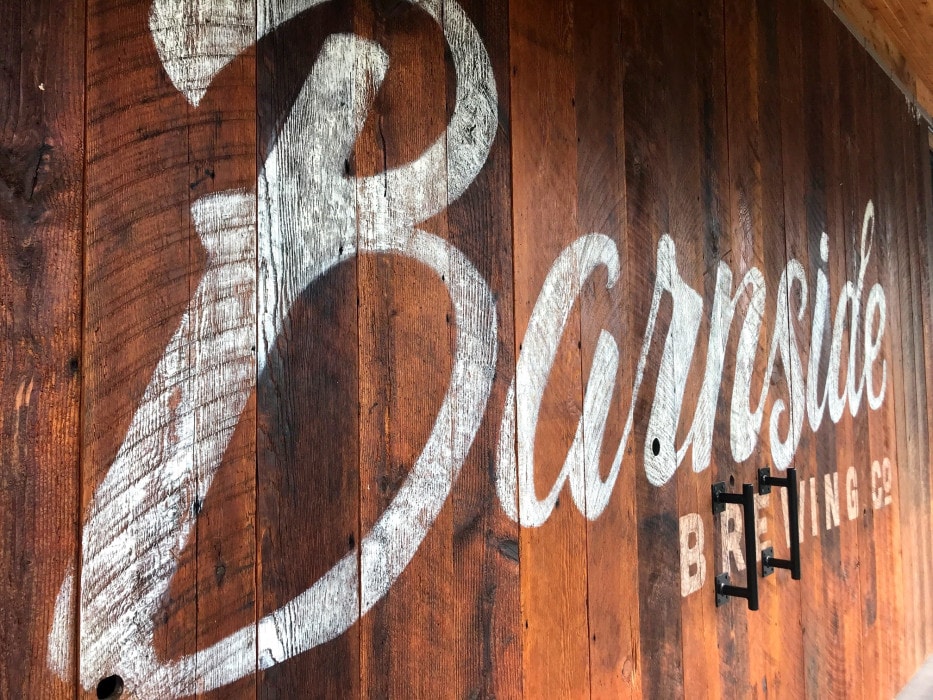
Thanks to the COVID-19 pandemic, Barnside had to shut those barn doors only two months after opening. However, navigating the experience brought some clarity to their service model as the brewery opened back up. Table service, which was not part of the original plans, was permanently adopted and food offerings were improved. The patio was developed to take advantage of relaxed rules about outdoor service. As keg sales to restaurants slowed, a canning line was installed ahead of schedule.
What never changed was the dedication to brewing beer with their homegrown ingredients.
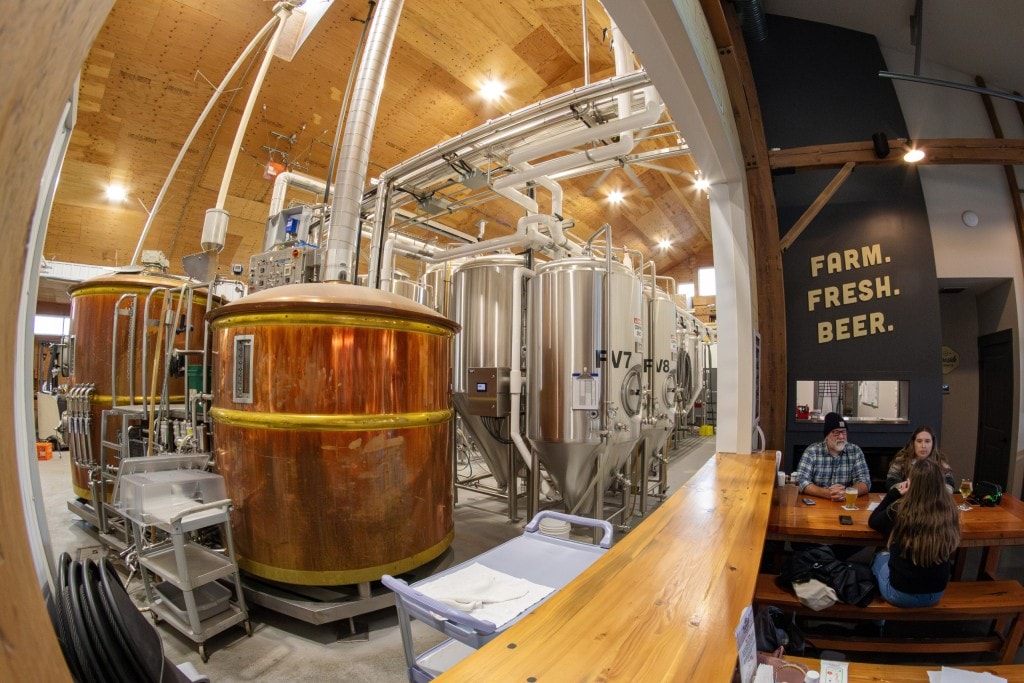
While economies of scale keep the brewery from exclusively using their own ingredients in all their beers, they aren’t far off. Some beers are indeed made with 100% locally grown ingredients; they are referred to as their “one-mile” beers, a little one-upmanship to the 100-Mile Diet. The yeast used in their sour beers, including their core Hop Yard Sour, is their own yeast that was gathered from the hop yard.
“A lot of brewers would find [using only local ingredients] limiting because they want to use hops from all over the world—and there’s nothing wrong with that!” Malenstyn said. “But the one thing I want people to take away is that the beer you’re tasting isn’t trying to be anything else but an expression of the land that you’re standing on: our terroir, our farming practices, our ingredients.”
“You can’t get this anywhere else, and that’s what we want you to appreciate about it.”
Speaking of hops: “We don’t buy any hops,” Malenstyn said. “We use the hops grown across the road. We use as much of our own grain as we can. We grow all of our own base malt and we do some specialty malting.”
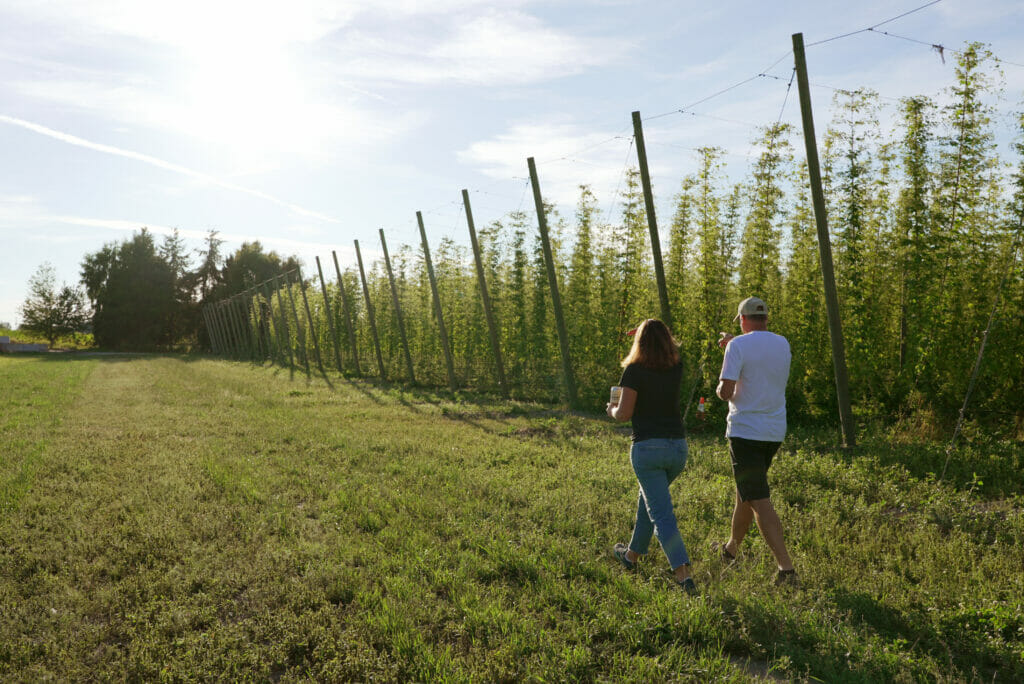
If not grown on their own farms, fruit for fruit beers is purchased from other local and BC farms. The tasting room’s food menu features references to nearly a dozen local food providers and farms, and Oughtred Coffee—a BC company with a roastery in Delta—is the coffee of choice.
“The more you can support locally, the more you keep your local community vibrant and your local economy vibrant,” Malenstyn said. “We’re not going to be using stuff that’s grown in Florida. It just wouldn’t make sense.”
The description of the tasting room’s Caesar salad bears this out. Romaine lettuce is from Crescent Island Farms—60 metres down the road—while tomatoes are grown at Windset Farms, nine kilometres away. The crostini? It’s made by L’Aromas Bakehouse, 10 kilometres south of the brewery.
The farming spirit of collaboration can be seen among the brewery employees. Barnside employs two dozen staff, and chances are you’ll be served by multiple cheery members of the tasting room staff while visiting. The tasting room’s kitchen was recently expanded and often features a line of three cooks turning out comfort food and snacks, including Ladner lox flatbread, an in-house hopped cheese board, and—Malenstyn’s favourite—the Farmhouse Grilled Cheese Sandwich (*add bacon).
The brewing is run by a team of two: KPU graduate and Head Brewer Justin Larter (who spoke with Kim Lawton in March for the “Hops Among Friends” series) and Brew Ops Manager Calum Huntingdon.
“Sure, they have different titles,” Malenstyn said, but in the spirit of pitching in on the farm, “they do everything.” He added that the brewers have been given more freedom to work on limited releases and tasting room-only beers, but to always think within a farm structure.
“We really want to share the fact that we’re farming,” Malenstyn said, and referenced their Ladner Clay IPA, named after the productive soil in their region.
“The farm is our canvas to tell different stories.”
Malenstyn is hopeful to branch out into foraging-style beers and to do more farming collaborations. Their second annual Grainstorm Collab, a fresh hop white IPA, was released in early October and included pilsner malt from The Beer Farmers in Pemberton, malted white wheat from Locality Brewing, and Cascade hops from Barnside—all BC farm-based breweries.
The brewery is also collaborating with two post-secondary institutions on special hop projects. At Langley’s Kwantlen Polytechnic University, the Applied Genomics Centre is researching the breeding and development of new hop varieties. With Langara College in Vancouver, Barnside is working with researchers who have identified and collected different types of feral hops from around the province. The goal is to identify commercially viable hops that have developed farming and flavour traits unique to British Columbia. Malenstyn noted that “[h]aving those new varieties to play with elevates our hop industry in BC when all growers have access to them.”
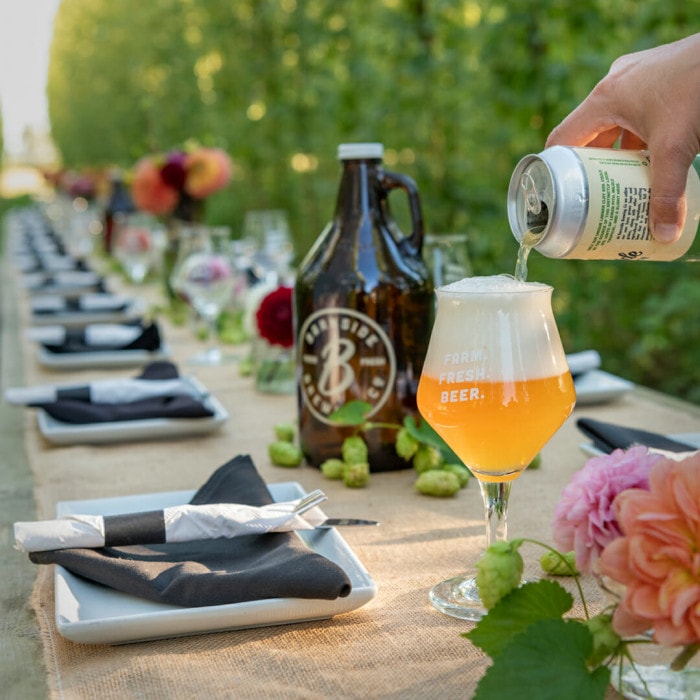
Growers and non-growers alike can get up close and personal with the Barnside hops. During the growing season, Barnside hosts hop yard tours, and culinary fans have been treated to food and drink pairings as part of the brewery’s “Between the Bines” dinner series.
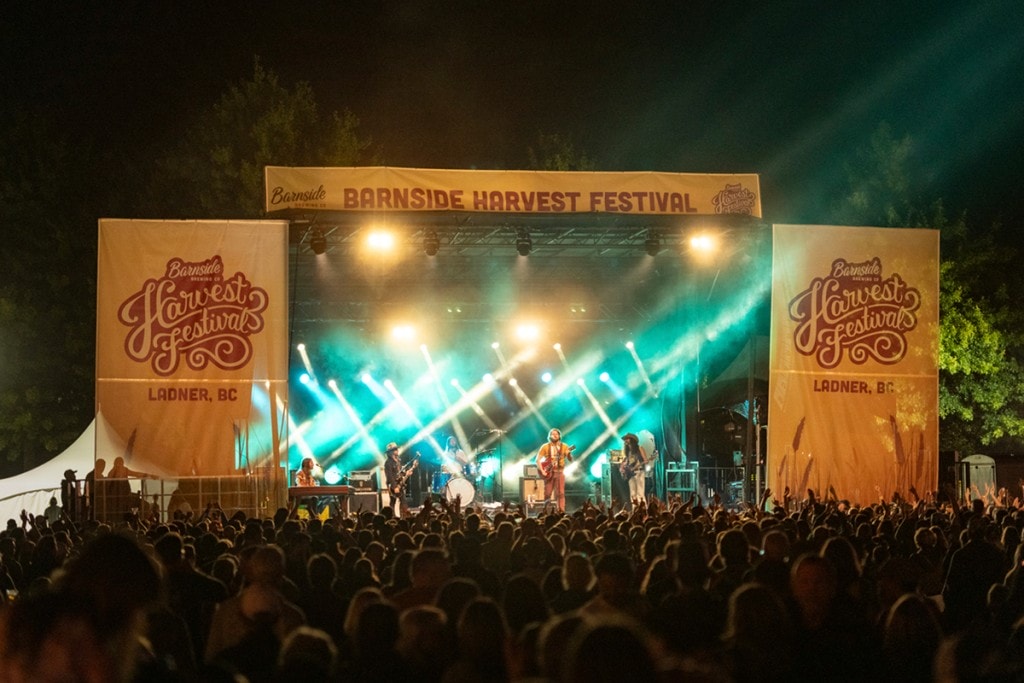
In September, the inaugural Barnside Harvest Festival welcomed more than 23,000 music fans to Paterson Park in nearby Ladner for three days of music headlined by The Sheepdogs and 54-40. Putting together a multi-day music festival was a way to show appreciation for their hometown—one that supported their brewery through pandemic beginnings and growth into a craft beer destination.
And is Malenstyn cool with having a craft beer destination across the street from his house? Absolutely—just pay due attention to the tractors that still chug up and down 60th Avenue during the harvest. Come by on a weekend and reconnect with friends—chances are he’ll cross the street to join you.
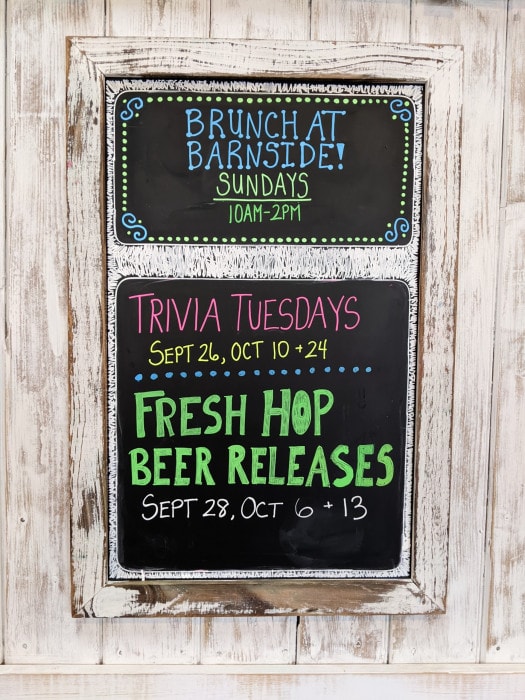
“Sunday brunch [at the brewery] is my favourite day,” Malenstyn said. “Dogs, families, all ages, a real mix of people.”
“These are the days when I can sit here and say, ‘This is the brewery I always wanted to visit,’ and we’ve built it like that.”
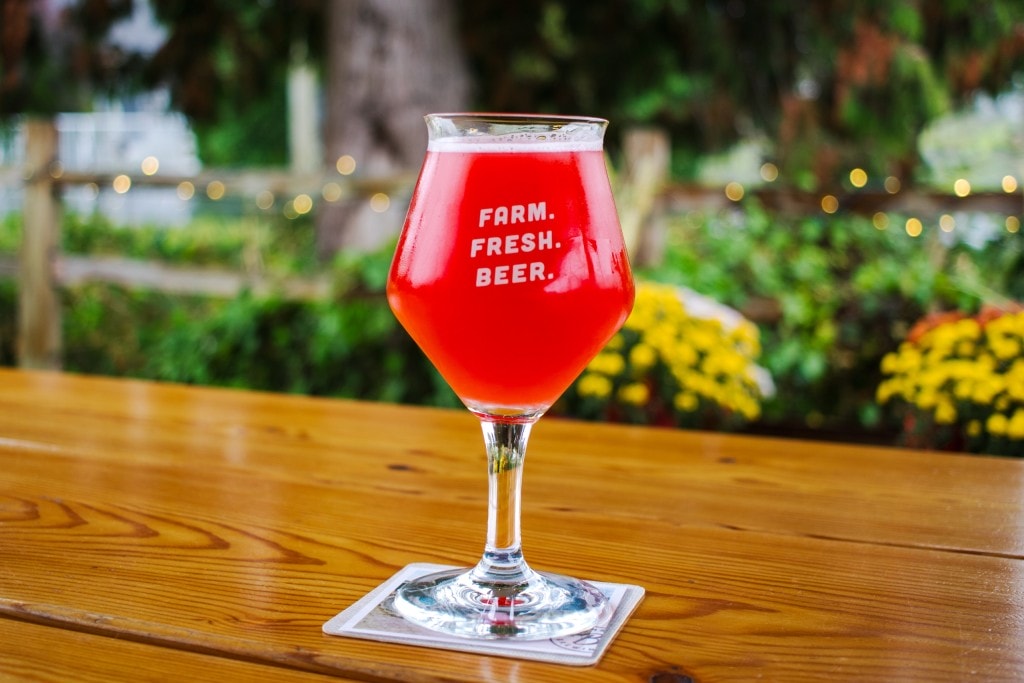
Four Barnside Beers to Bet the Farm On
- Batch No. 200 Estate Barleywine: grab one of the few remaining bombers of this silver medal winner at the Canadian Brewing Awards. Aged for 13 months in blackberry brandy barrels and released for the brewery’s third anniversary. Rich and robust.
- Raspberry Hop Yard Sour: BC raspberries pair perfectly with a balanced acidity that comes from a wild sourdough culture. Plus, beauty colour, eh?
- Shingle Mill ESB: a malty pub ale brewed with modern hops and taken to the next level using open fermentation in a coolship in the brewery. (Beer nerds are nodding.)
- Any fresh hop beers: it takes most breweries a few hours to a full day to get freshly harvested hops into their beers. Because their hop farm is across the street, Barnside’s hops go from pluck to pot in about 20 minutes. That’s fresh!
- Bonus: say ‘Dank you very much’ for their new ‘Road Pop,’ a sparkling hop water with no alcohol, sugar, or calories.
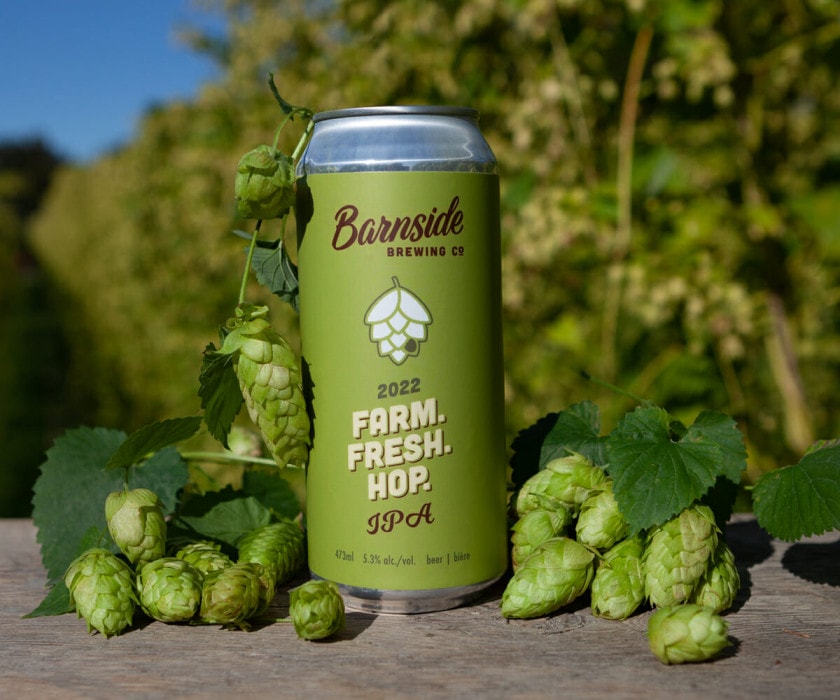
Barnside Brewing is part of the South of the Fraser Ale Trail. This trail features nine breweries and seven taphouses in Greater Vancouver communities south of the Fraser River: Delta, Richmond, Surrey, and White Rock.
The brewery is less than two kilometres from the intersection of highways 99 and 17A and, for folks visiting by ferry from Vancouver Island, only 15 km from the BC Ferries terminal at Tsawwassen. Pro tip: the roadways from Tsawwassen to Delta are almost completely flat, so consider travelling by bicycle!
Visit Barnside at 6655 60 Avenue, Delta, BC.

Driving (or Bicycling) Distances
Tsawwassen Ferry Terminal: 15 km
Vancouver: 25 km
Bellingham, WA: 65 km / 40 miles
Seattle, WA: 210 km / 130 miles
Kelowna: 390 km
The BC Ale Trail reminds you to drink responsibly and do not drink and drive.

